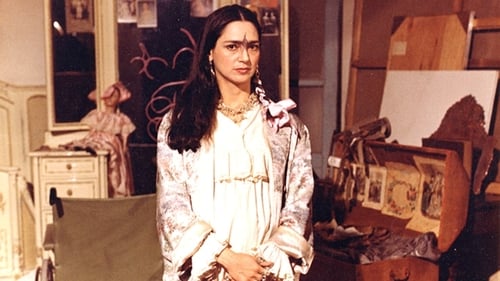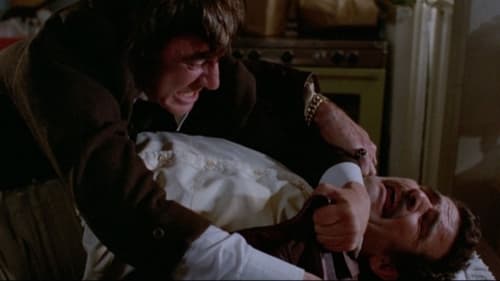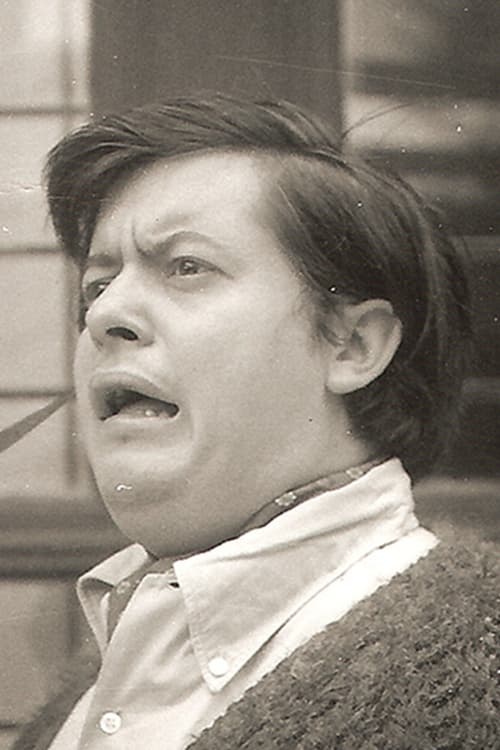Juan José Gurrola
Nacimiento : 1935-10-19,
Muerte : 2007-06-01
Historia
Juan José Gurrola (Mexico City, November 19, 1935-ibidem, June 1, 2007) was an architect, radio, film and theater director, actor, set designer, playwright, painter, photographer and Mexican performer. He was awarded the National Prize for Sciences and Arts in the area of Fine Arts by the Mexican government in 2004.

Diego Rivera
En su lecho de muerte, la pintora Frida Kahlo recuerda su vida. Por su mente y por la pantalla, desfilan los personajes y situaciones más significativos de su atormentada existencia

El Rojo
Miguel, un agente corrupto es inculpado por sus compañeros. En la cárcel es golpeado por unos malhechores a los que él había torturado. A causa de la golpiza, Miguel asume la personalidad de un detective de novela, y de la prisión pasa al manicomio de donde escapa con la ayuda de otro desequilibrado. Se dedica a combatir lo que él imagina una conspiración comunista para acabar con la democracia occidental.

Writer
A young woman of wealthy class rejects the world that surrounds her and dies, but in her wake a shaman resuscitates her. She is dedicated to transgressing all the rules of her society. In the end a strange character offers him a flower and they both love each other.

A young woman of wealthy class rejects the world that surrounds her and dies, but in her wake a shaman resuscitates her. She is dedicated to transgressing all the rules of her society. In the end a strange character offers him a flower and they both love each other.

Director
For Robarte el Arte [Stealing the Art] (1972), Juan José Gurrola together with Gelsen Gas and Arnaldo Coen supposedly stole an artwork during Documenta 5 in 1972 and represented it with an asterisk of scotch tape on a rock in the Wilhelmshöhe Park. Sequences of this performative action are montaged like in a silent movie with panels of cut-up newspaper text blocks, installation shots from the Documenta exhibition inside and outside Fridericianum, and scenes from a horror porn movie based on the story of the serial killer "Goyo" Cárdenas – his case became a sensation on Mexican media in the 1940s and inspired several copycat murderers imitating his crimes – and underscored with a dramatic soundtrack. With Robarte el Arte, the artists satirically destabilize Documenta’s institutionalized role to chart the current art developments and thus setting the foundation for a so-called canon as Eurocentric.

For Robarte el Arte [Stealing the Art] (1972), Juan José Gurrola together with Gelsen Gas and Arnaldo Coen supposedly stole an artwork during Documenta 5 in 1972 and represented it with an asterisk of scotch tape on a rock in the Wilhelmshöhe Park. Sequences of this performative action are montaged like in a silent movie with panels of cut-up newspaper text blocks, installation shots from the Documenta exhibition inside and outside Fridericianum, and scenes from a horror porn movie based on the story of the serial killer "Goyo" Cárdenas – his case became a sensation on Mexican media in the 1940s and inspired several copycat murderers imitating his crimes – and underscored with a dramatic soundtrack. With Robarte el Arte, the artists satirically destabilize Documenta’s institutionalized role to chart the current art developments and thus setting the foundation for a so-called canon as Eurocentric.

Maestro 2
En un Oeste imaginario, el pistolero Topo se enfrenta a una banda de fetichistas, dirigida por un coronel lascivo, que tiene atemorizada a una congregación franciscana. Singular y provocativa película de culto, mezcla de géneros y movimientos culturales. John Lennon dijo de ella que era una obra maestra.

Director
Alberto Gironella was a Mexican plastic artist, considered one of the exponents of La Ruptura.

Writer
Dos historias sobre la imposibilidad de amar en un mundo moderno lleno de desencanto. En Tajimara, el reencuentro entre Cecilia y Roberto se ve ensombrecido por el recuerdo de un pasado más inocente y por la presencia de Guillermo, un antiguo amor de Cecilia. La importancia de esta relación pasa a un segundo plano cuando Roberto devela la callada pasión que existe entre su amigo Carlos y Julia, la hermana de éste. Un alma pura retoma el tema del amor prohibido entre dos hermanos, Claudia y Juan Luis, quienes han puesto tierra de por medio a su pasión, tratando de evitar un trágico destino.

Writer
First of two films that make up the collaborative film "Los Bienamados" (The Beloved, 1965). It narrates the encounters and misunderstandings of a pair of lovers during the years, from their adolescence to maturity.

Director
First of two films that make up the collaborative film "Los Bienamados" (The Beloved, 1965). It narrates the encounters and misunderstandings of a pair of lovers during the years, from their adolescence to maturity.

Director
Dos historias sobre la imposibilidad de amar en un mundo moderno lleno de desencanto. En Tajimara, el reencuentro entre Cecilia y Roberto se ve ensombrecido por el recuerdo de un pasado más inocente y por la presencia de Guillermo, un antiguo amor de Cecilia. La importancia de esta relación pasa a un segundo plano cuando Roberto devela la callada pasión que existe entre su amigo Carlos y Julia, la hermana de éste. Un alma pura retoma el tema del amor prohibido entre dos hermanos, Claudia y Juan Luis, quienes han puesto tierra de por medio a su pasión, tratando de evitar un trágico destino.







